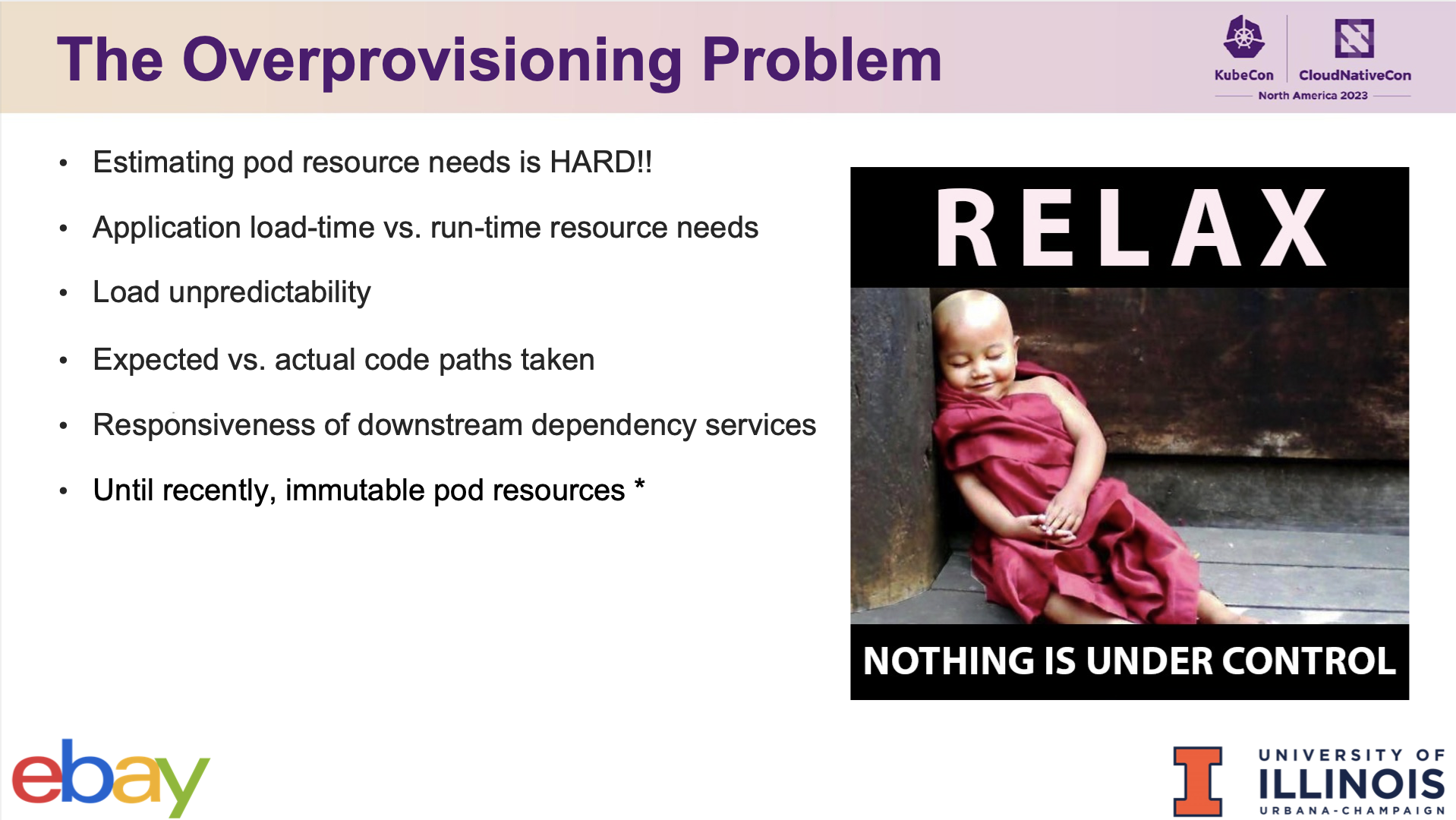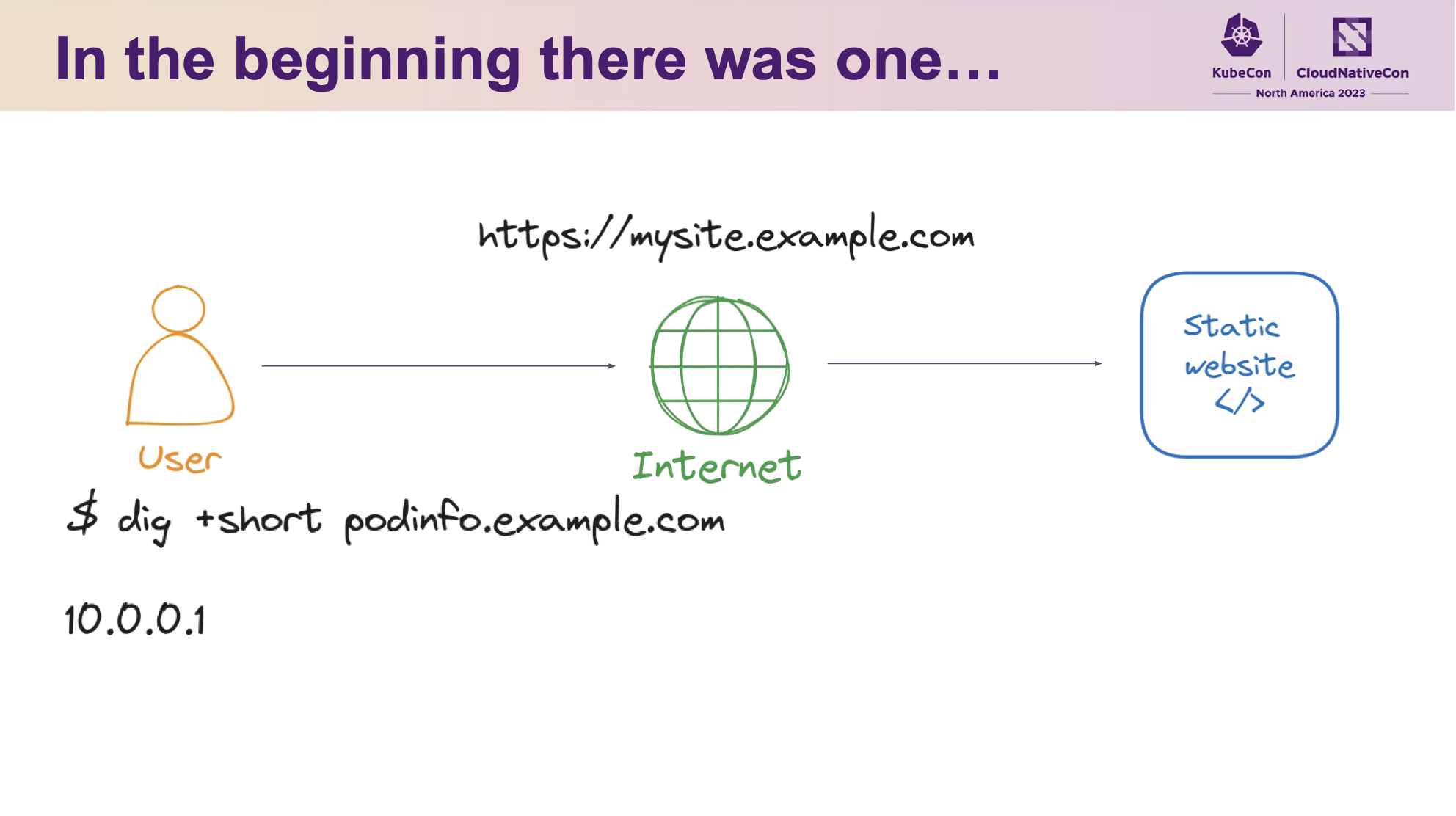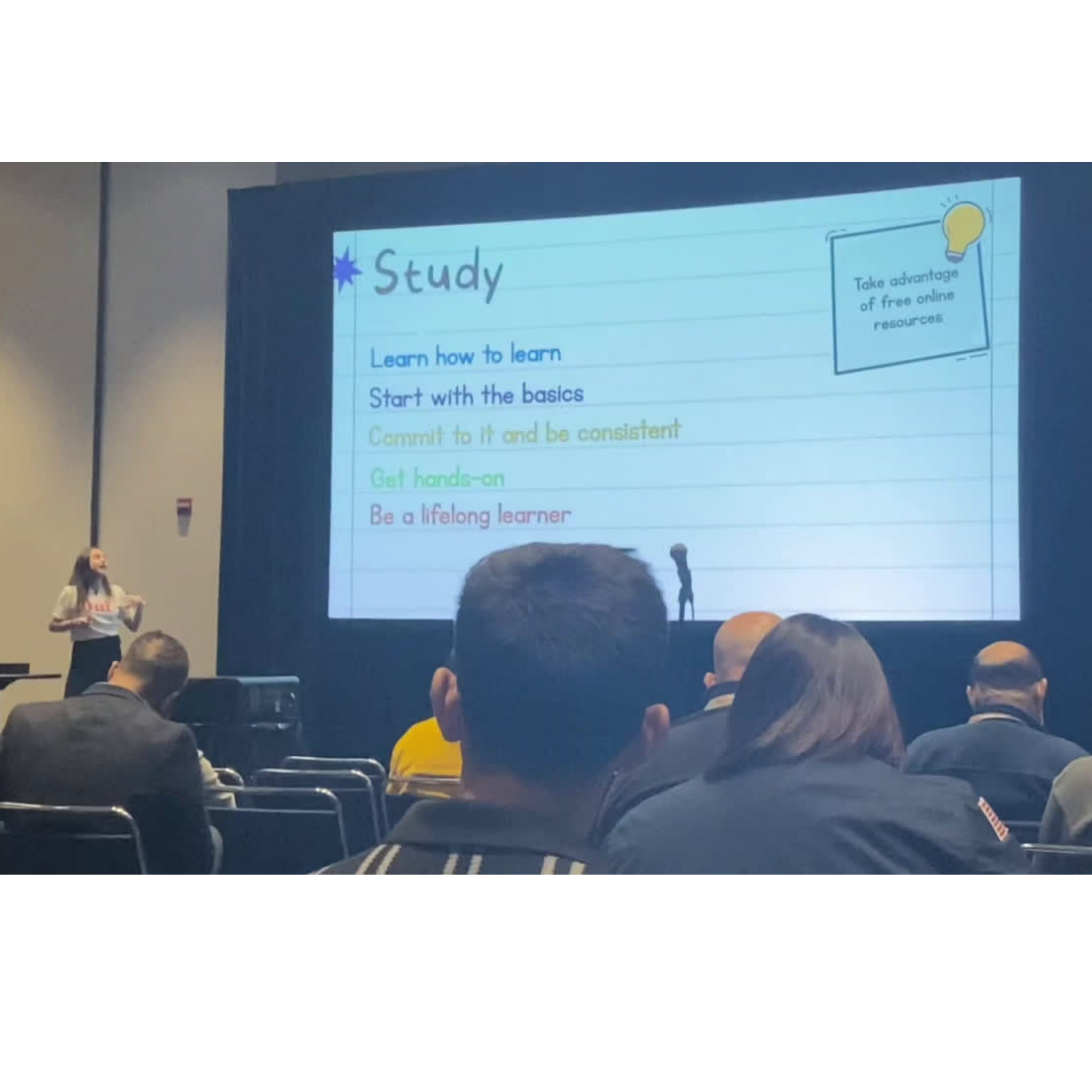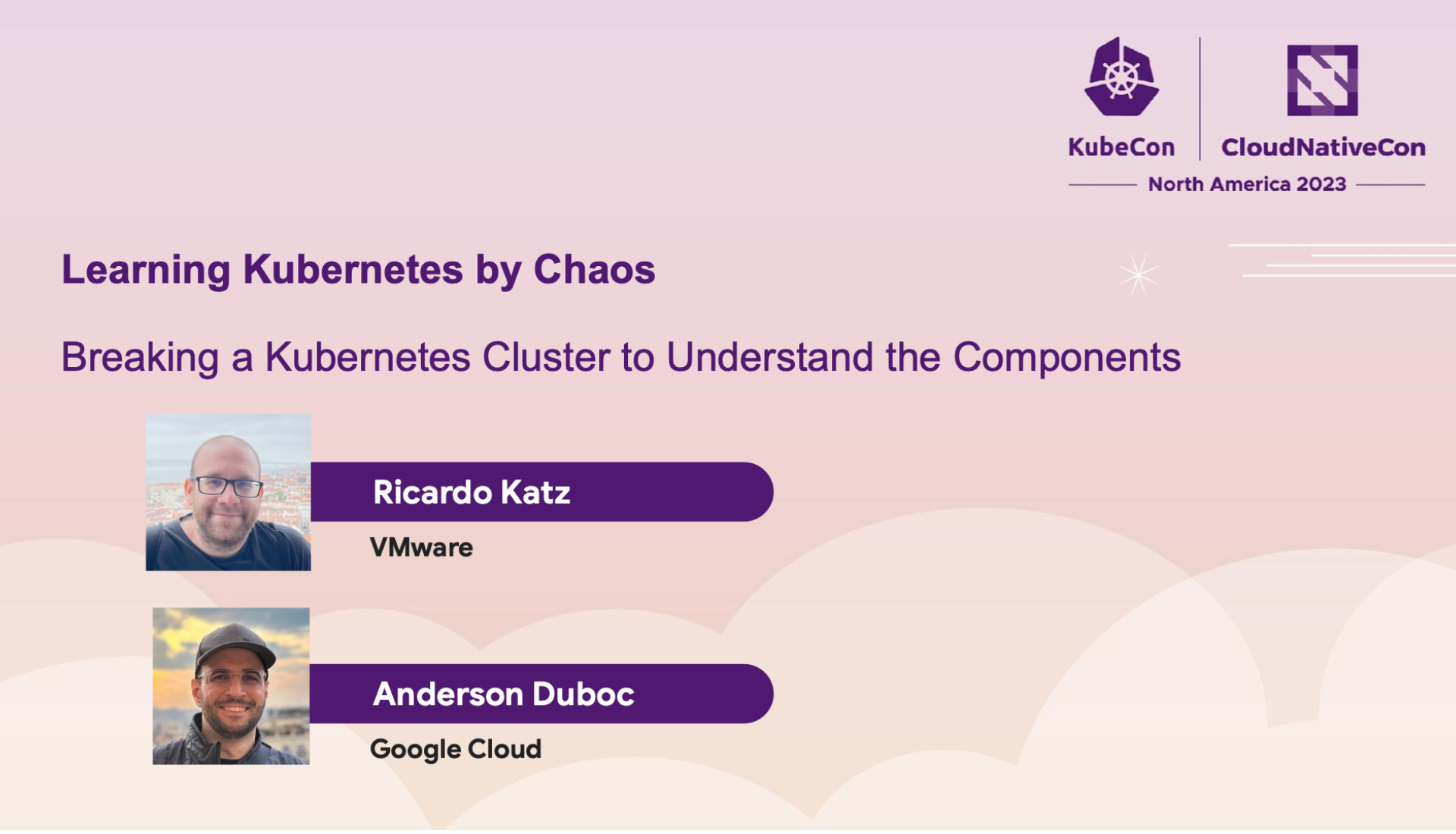By Dan Quackenbush
In the dynamic world of tech conferences, there exists a gem unlike any other – KubeCon, where the orchestrators of Kubernetes gather to share tales of triumph and innovation. As a seasoned navigator of cluster administration, I found myself immersed in the heartbeat of this dynamic symphony of ideas, particularly drawn to the stories that unfolded after the initial deployment – the fascinating Day 2 Operations.
The first stop, Major League Baseball + Argo CD: A Home Run, implemented GitOps through Argo CD to empower feature-driven development using Helm charts. The stage was set with a compelling case study, highlighting how developers were handed the reins to their applications without drowning in the sea of YAML configurations. Through the power of abstraction, Helm deployed through Argo, allows them to focus on features, such as enabling monitoring, injecting secrets, and exposing their services across two hundred clusters, bringing consistency to the service runtime landscape.

The talk FinOps at Grafana Labs illuminated the path to financial accountability, transforming it into a cultural cornerstone. The speaker painted a vivid picture of a world where accountability, transparency, and a culture of openness were the guiding lights. Through real-world examples, the audience learned the impact of “cash positive chaos testing,” moving to spot instances, aligning cost optimization measured against service reliability, and the importance of continuously stress-testing applications in various infrastructure conditions.
In a creative twist, Burden to Bliss: Eliminate Patching and Upgrading Toil with Cluster Autoscaler at Scale, dived into leveraging Cluster Autoscaler for applying security patches. The ingenious strategy involved creating new node pools and strategically shifting pods with tolerations to the patched nodes. By creating new node pools with the patched system and strategically forcing a single pod with toleration to the patched node, the talk demonstrated how eventual consistency mechanisms could be leveraged to shift all pods to the new node through eviction. This innovative strategy ensures that security patches are seamlessly applied without affecting ongoing workloads.
The final act in this symphony of talks explored the intersection of Kubernetes, service mesh, and content delivery networks (CDNs). Take It to the Edge: Creating a Globally Distributed Ingress with Istio & K8gb, 
It is always interesting to hear how people are handling similar problems. These talks show us, how as a Kubernetes administrator, with a new mindset, can provide a central way for developers to be feature vs configuration driven, scale those workloads either in place, or through cheaper means, all while reducing the burden on sustainability. Once deployed, these applications can then spread across regions, on hardened nodes. I invite you to check out the talks, dive into the dynamic Day 2 Operations, and discover the secrets shared by industry leaders.
By Dani Shirer, Director of Project Management, River Point Technology
KubeCon is a major tech conference hosted by Cloud Native Computing Foundation (CNCF), a project by the Linux Foundation to help advance container technology. This year, it was held in Chicago with three and half days of sessions, demos, workshops, and networking events packed into the schedule. Although I was excited to attend with other members of the RPT Team, I was unsure of what to expect for my experience as a less technically-savvy attendee.
As a project manager in the tech industry, I have the distinct honor of working with my talented colleagues who are subject matter experts in this
As a result, the first question that popped into my head upon learning I would be attending Kubeon was: Will there be value for me in these sessions or is everything going to be over my head? A fairly standard rumination from the imposter syndrome many of us in this field grapple with on a daily basis.
However this isn’t the CNCF’s first rodeo, and they had prepared a full offering for me and the other newbies attending. While planning my schedule on the website, I found a category of sessions labeled “Cloud Native Novice” and suddenly birds were singing and there was a light at the end of the tunnel. With my Sched app filled, I was ready to take on KubeCon. Here are a list of the Cloud Native Novice talks I attended with my major take-aways:
It’s Never Too Late for PKI Fundamentals: Building a Mental Model – Jackie Elliott, Microsoft
This was an excellent session to kick off with. Jackie did an amazing job breaking down the concepts of Public Key Infrastructure and its purposes; facilitating the secure transfer of information, increasing a network’s security, and providing a common framework of practices, policies and technologies. PKI is a term I’ve heard come up during numerous project discussions, and while I had a general understanding, it was really valuable to take a deep dive to help cement that comprehension.
From Non-Tech to CNCF Ambassador: You Can Do It Too! – Julia Furst, Veeam
By far my favorite KubeCon session! Julia walked us through her journey from a non-technical Marketing Manager to a CNCF Ambassador in a
span of two years. She touched on pushing past that imposter syndrome and self-doubt that inevitably comes when faced with difficulties, and also advocated for public learning, which essentially means to put yourself out there into various support networks (LinkedIn, GitHub Community Discussions, YouTube, Twitter) and to not be afraid to ask questions publicly to gain insight from your peers in this industry. I left Julia’s session feeling inspired and have already watched some of the introductory videos on her YoutTube Channel.
Demystifying Service Mesh: Separating Hype from Practicality – Brian Redmond & Ally Ford, Microsoft
Another great deep dive into a tool I regularly work with. RPT often provides consulting services for HashiCorp Consul and all of our customers use some form of a service mesh. Brian and Ally truly did demystify service meshes by breaking down the major pillars of security, observability and traffic management and providing thorough context that will help me speak more confidently during project planning around the subject.
With RPT leading consulting projects for HashiCorp Vault and AWS Services, Keycloak tends to find its way into project planning and discovery sessions, so I was very much looking forward to this presentation. Soojin and Hoon did not disappoint. They delved into the authentication and authorization cycle in a way that was easy to understand and provided detailed mappings of IAM within the multi-cloud world.

colleague or customer quickly spin up a cluster in a no-nonsense manner with little discussion around its components. Ricardo and Anderson instead, pulled up the code to an existing Kubernetes cluster and systematically broke then repaired the individual parts of it in order to showcase each purpose and function of said parts.
Beyond the Novice track, KubeCon offered incredible opportunities for networking with industry leaders, collaboration with new and existing partners, exposure to emerging tools within the cloud native landscape, and enough free knick-knacks on the showroom floor that I had to take a second carry-on with me for the plane ride home.
I’m eager to utilize my new arsenal of knowledge and continue to expand upon it, and hopefully by next year’s KubeCon, I’ll be writing a breakdown of the Cloud Native Expert Track.
October 13, 2023 – River Point Technology (RPT), a leading IT consulting, training, and enablement services provider, is thrilled to announce that we have received the 2023 HashiCorp Global Competency Partner of the Year award.
RPT was recognized for our high level of competency with the HashiCorp suite of infrastructure automation software. Since our founding in 2011, our founder Jeff Eiben has focused the company on building a best-in-class team of cloud experts, including an extensive list of HashiCorp Ambassadors. This global award reflects the caliber of the talent he’s been able to assemble and t
“We are thrilled to be named HashiCorp’s Global Competency Partner of the Year,” commented Jeff Eiben. “This award is a testament to RPT’s deep expertise in HashiCorp’s cloud infrastructure automation solutions and our commitment to helping our customers achieve their business goals. With this recognition and as the first and only Triple HashiCorp competency holder, RPT is uniquely positioned to help enterprises leveraging HashiCorp to get the most out of their technology investment.”
“With this recognition and as the first and only Triple HashiCorp competency holder, RPT is uniquely positioned to help enterprises leveraging HashiCorp to get the most out of their technology investment.” -Jeff Eiben, CEO & Founder of RPT
The HashiCorp Partner of the Year awards honor exceptional partners within the HashiCorp Partner Network for their enduring commitment to building integrations for the HashiCorp suite of multi-cloud infrastructure automation products, which are used by enterprises around the globe.
“Thousands of companies used HashiCorp to provision, secure, connect, and run cloud infrastructure for their most important applications. River Point Technology is a key ecosystem partner and we are thrilled to recognize their contribution with the HashiCorp Global Competency Partner of the Year award,” said Leon Jones, VP, Worldwide Partner Ecosystem at HashiCorp. “I am excited to continue our collaboration with River Point Technology so that together, we can help our customers realize the full value of our combined solutions.”
“River Point Technology is a key ecosystem partner and we are thrilled to recognize their contribution with the HashiCorp Global Competency Partner of the Year award.” – Leon Jones, VP, Worldwide Partner Ecosystem, HashiCorp
HashiCorp provides infrastructure automation software for multi-cloud environments, enabling enterprises to unlock a common cloud operating model to provision, secure, connect, and run any application on any infrastructure. HashiCorp tools allow organizations to deliver applications faster by helping enterprises transition from manual processes and ITIL practices to self-service automation and DevOps practices. Enterprises looking to optimize their investment in the HashiCorp suite of products can trust that the team at RPT is best in class. As HashiCorp’s Global Competency Partner of the Year and the first and only Triple HashiCorp competency holder, we have the expertise and experience to help organizations at all stages of their automation journey get the most out of their investment.
Does your team need assistance with any of the HashiCorp products? Our experts can help. Contact us at [email protected] or drop us a line at +1 (412) 212 – 6170.
